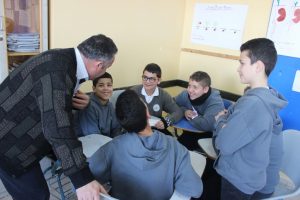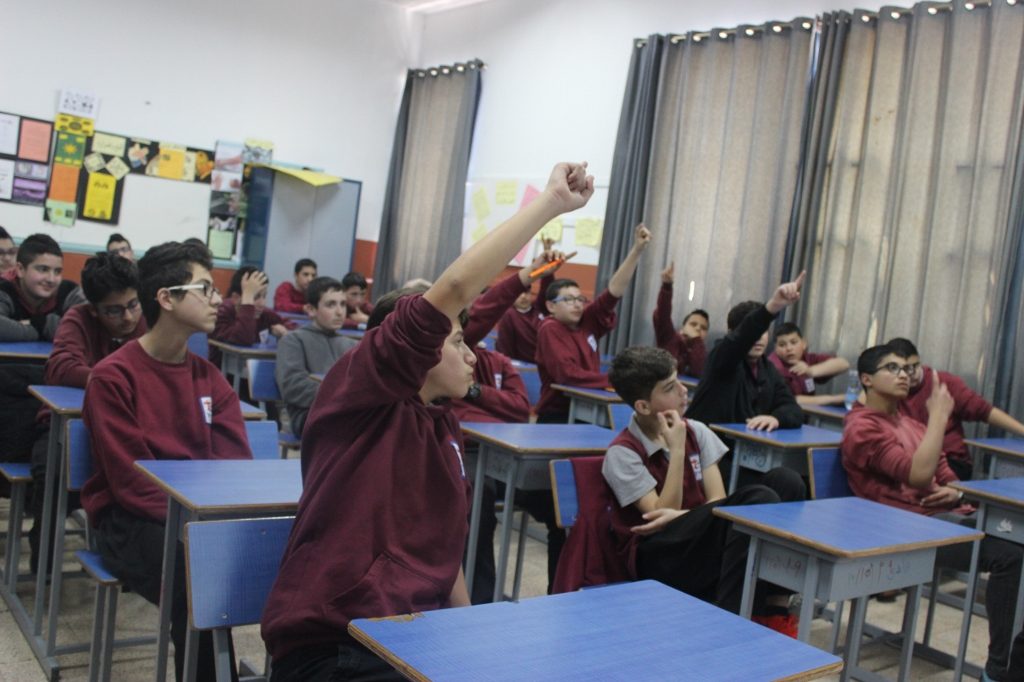 Peer-mediation trainings are essential now more than ever for students in West Bank schools. In our workshops, students learn basic skills in peer mediation, active listening, problem solving, and communication. Trainees show a significant increase in their use of mediation behavior and negotiation skills, applicable in their interactions at school and home. Conflicts that lend themselves to peer-mediation include interpersonal disputes, verbal harassment, spreading rumors, physical aggression, or bullying behavior. In addition to focusing on students, we also conduct trainings with teachers and parents in various schools in the West Bank, thereby increasing impact.
Peer-mediation trainings are essential now more than ever for students in West Bank schools. In our workshops, students learn basic skills in peer mediation, active listening, problem solving, and communication. Trainees show a significant increase in their use of mediation behavior and negotiation skills, applicable in their interactions at school and home. Conflicts that lend themselves to peer-mediation include interpersonal disputes, verbal harassment, spreading rumors, physical aggression, or bullying behavior. In addition to focusing on students, we also conduct trainings with teachers and parents in various schools in the West Bank, thereby increasing impact.
Wi’am also produces and disseminates training manuals on peer mediation and other interrelated fields, focusing on case studies and experiential learning. We have six primary manuals that take an interdisciplinary approach, including the themes of non-violence and conflict transformation, dialogue among religions and civilizations, globalization, human rights and security, advocacy, civil society and democracy, and peer mediation case studies taken from school contexts.
Wi’am has organized peer mediation trainings and meetings for students in public, private, and United Nations (UNWRA) schools in the West Bank. The goal of the peer mediation trainings is to help schools become healthier, more positive, and safer learning environments by empowering students to manage conflict, transform relationships, and promote the moral values of accepting others. Feedback from our participant schools indicates the school climate has improved, with a significant decrease in the number of conflicts among students and higher student achievement. Above all, our interventions have helped students gain perspective and understanding of themselves and improved the school atmosphere by strengthening relationships and building a strong sense of cooperation.

